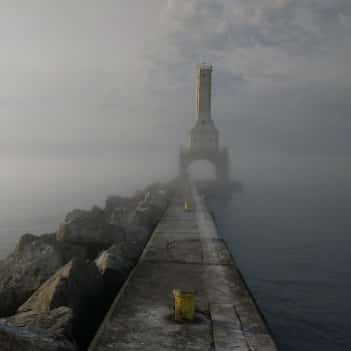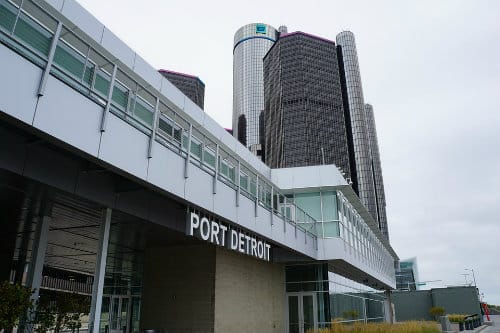If you’ve recently been injured as a maritime or offshore worker in Michigan, you may have many questions:
We can help answer your questions in a free legal consultation. We can also explain the worker's compensation process and how you may seek compensation after a work injury. Contact our experienced Michigan Jones Act attorneys today.
Michigan borders four of the Great Lakes, including:
With such close proximity to four major bodies of water, the Canadian border, and within reasonable travel of most of the continental United States, Michigan is in a prime location for maritime commerce. There are approximately 137 private ports throughout the state of Michigan, employing tens of thousands of maritime employees and other workers who depend on port functions.
The local economy depends on the revenue generated by these jobs, and employees in this sector are able to provide a stable living for their families. However, it’s fairly common for injuries to occur in maritime workplaces.
An unexpected maritime injury can cause serious financial and personal difficulties. This is why it’s important to make sure you seek the financial compensation you deserve after suffering a maritime injury in Michigan with help from our offshore injury attorneys. If a loved one lost their life in a maritime accident, surviving family members may also be eligible for compensation.


Michigan’s ports and harbors include commercial, government, and recreational facilities. The majority of marine cargo transportation occurs in terminals under the control of the Detroit/Wayne Country Port Authority. The Port of Detroit has either directly or indirectly created nearly 16,000 jobs in Southeast Michigan, accounting for $500 million in direct business revenue, $255 million in personal income, and $288 million in State and Federal tax revenue.
According to the Detroit/Wayne County Port Authority, Michigan’s ports handle significant percentages of certain commodities transporting through the Great Lakes, including:
In total, there are 40 commercial ports in Michigan that move roughly 80 million tons of cargo each year. Top commodities traded through these ports include steel, general cargo, ore, coal, cement, stone/aggregate, petroleum, dry bulk, and liquid bulk.

The Jones Act is a federal law that allows injured “seamen” to recover financial compensation after suffering an offshore or maritime injury. Anyone who spends at least 30% of their work hours in the service of a vessel on navigable waters is covered under this act.
There are a few possible forms of compensation available in a Jones Act claim:
These benefits are available for any eligible worker who suffers an injury while working in the service of a vessel on navigable waters. Maintenance refers to required daily living expenses, such as rent/mortgage, bills, and food. Care applies to medical bills, which will be paid up until your doctor determines that you’ve reached maximum recovery.
If you’re covered under the Jones Act and some form of negligence contributed to your injury, you can hold your employer liable in a Jones Act lawsuit. Negligence may be considered any failure to keep your work environment free of hazards that could cause an injury. This can apply to direct employer negligence (such as failing to provide safety equipment) or through the negligence of a co-worker.
If your work vessel contained a defect or other unsafe condition at the time of your injury, you can seek additional compensation under the concept of unseaworthiness. Vessel owners have a duty to keep their vessels safe for the people who use them. When a vessel owner fails to do so, injured workers can sue both the owner and potentially their employer as well, if employer negligence was a factor.
If you’re not covered under the Jones Act, don’t worry. There are other maritime laws available for financial compensation, such as the Longshore and Harbor Workers’ Compensation Act.
Maritime law is a complex field and maritime work injury claims often require the assistance of a lawyer who specializes in this field. Many maritime workers place too much faith in their employers and insurance companies, expecting them to look out for employee interests when an injury occurs. Unfortunately, these companies too often place their profits over the health and safety of these workers. However, a resourceful and experienced maritime accident lawyer can make sure you recover the financial compensation you need and deserve after an injury.
To find out more about your rights and to begin planning for your recovery, contact one of our experienced maritime injury lawyers for a free consultation. We’ll fight for the compensation you deserve, and will only require payment if and when we succeed.
See Related: Work Injury Protections Under The Longshore And Harbor Workers’ Compensation Act
 info@legalherald.com
info@legalherald.com